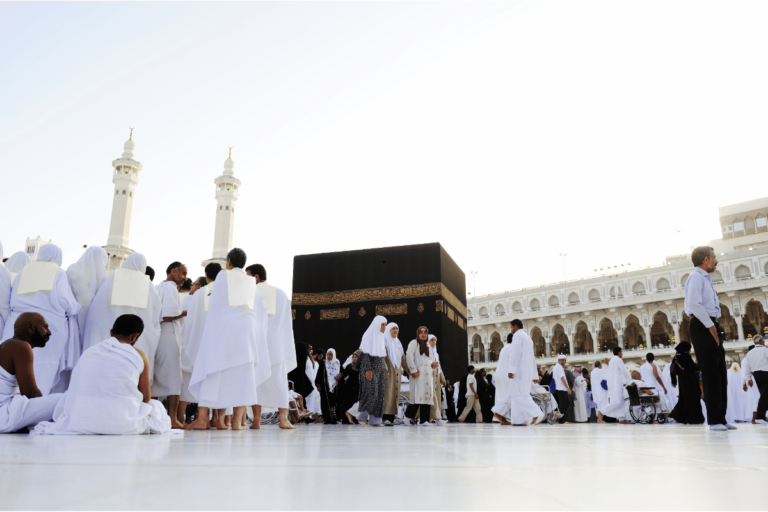What Is Sharia? Understanding Islamic Law in Simple Terms
Have you ever thought about how millions of Muslims live their lives by certain rules? These rules are part of Sharia, the Islamic legal system. It helps Muslims in their spiritual and everyday lives. Let’s make this complex topic simple to understand.
Sharia is often misunderstood in the West. It’s not just a set of rules. It’s a detailed guide for Muslim life, based on the Quran and Islamic traditions. This guidance affects how Muslims act, their family lives, and even their money dealings.
Sharia’s principles are universal, but how they’re applied varies in different Muslim countries. It impacts many areas of life, from personal ethics to criminal law. Knowing about these Islamic law concepts helps us understand the religious duties that shape Muslim societies around the world.
Key Takeaways
- Sharia is derived from the Quran and hadith
- It covers personal conduct, family matters, and financial dealings
- Interpretation of Sharia varies across different Muslim countries
- Five major schools of Islamic law exist
- Sharia requires a woman’s consent for marriage
- Many Americans associate Sharia with intolerance
- Islamists see Sharia revival as a solution to societal issues
The Origins and Meaning of Sharia
Sharia, the heart of Islamic law, began in the 7th century with Islam’s start. It’s a guide for Muslim life, covering spiritual, moral, and legal areas.
Definition and Etymology of Sharia
The word “Sharia” means “path to the watering place” in Arabic. It’s a divine path for Muslims, guiding them in their faith, society, and personal beliefs.
Historical Development of Islamic Law
As Islam spread, Sharia grew too. It took in ideas from conquered lands, fitting into new cultures. Now, 35 countries mix Sharia with their laws.
Primary Sources: Quran and Hadith
The Quran and Hadith are Sharia’s core sources. The Quran is seen as God’s word, laying down key teachings. The Hadith, with sayings and actions of Prophet Muhammad, gives more guidance.
But, Sharia wasn’t used as law during Muhammad’s life or for 150 years after. Early Islamic societies were ruled by leaders who mixed Islamic teachings with old laws.
“Shari’a is not a legal system; it is the overall way of life of Islam according to early interpretations dating from 700 to 900 CE after Prophet Muhammad’s death in 632 CE.”
Knowing these roots clears up myths about Sharia and its role today in Muslim-majority countries.
Fundamental Principles of Islamic Jurisprudence
Islamic law, or Sharia, is the base of fiqh. It’s the study of religious texts to make legal rules. Sharia guides Muslims in their daily lives, covering religious duties and social norms.
This system helps Muslims understand the moral impact of their choices. For example, Islamic law bans gambling, alcohol, and interest (riba).
Islamic jurisprudence uses several key sources and methods:
- The Quran: Only a few hundred verses have direct legal relevance
- Hadith: Several thousand sound prophetic traditions exist
- Ijma: Consensus among scholars
- Qiyas: Analogical reasoning
- Ijtihad: Independent interpretation
These principles help Islamic law stay true to its values while adapting to new situations. Many Muslim-majority countries mix Sharia with modern law, blending old and new.
“The Egyptian Civil Code of 1948 achieved a significant reconciliation between Western European jurisprudence and Islamic jurisprudence.”
Islamic finance shows how Sharia works in today’s world. It focuses on sharing risks and avoids too much uncertainty. This promotes ethical business that fits Islamic values.
The Five Major Schools of Islamic Law
Islamic jurisprudence has many interpretations, leading to five major schools of thought. These schools guide shariah rulings and Muslim religious obligations in various regions.
Sunni Schools
Sunni Islam has four main schools:
- Hanafi: Most widely followed in Turkey, Central Asia, and South Asia
- Maliki: Prevalent in North and West Africa
- Shafi’i: Popular in Southeast Asia and East Africa
- Hanbali: Influential in the Arabian Peninsula, especially Saudi Arabia
Shia School
The primary Shia school is Jaafari, found in Iran and Iraq. It highlights the importance of ijtihad (independent reasoning) in Islamic law.
Differences in Interpretation
These schools differ in their approach to shariah rulings. They agree on basic principles but vary in text interpretation and legal decision-making methods. This diversity shows Islamic law’s flexibility and allows for cultural adaptations.
Understanding these schools is key to grasping Islamic jurisprudence’s complexity. Each school enriches the Muslim religious obligations, influencing believers’ daily lives worldwide.
Sharia vs. Islamic Law: Understanding the Distinction
Sharia and Islamic law are often confused, but they’re different. Sharia is about God’s rules, covering how we treat God and each other. It guides many parts of Muslim life, from prayer to business.
Islamic law, or fiqh, is how humans try to follow sharia in real life. It lets us adjust Islamic rules to fit changing times.
Fiqh is key in making sharia work in everyday life. It uses several sources:
- Qur’an and Sunnah (sacred texts)
- Ijmāʿ (scholarly consensus)
- Qiyās (analogical reasoning)
Some sharia rules stay the same forever, but others can change. This is why there are many different views among Muslim scholars.
“Sharia provides timeless guidance on various life aspects, offering ethical and legal instructions for Muslim life.”
Islamic law uses four main sources to make decisions: the Qur’an, sunnah, ijma, and analogical reasoning. These help sort actions into five groups: must-do, good to do, neutral, bad to do, and forbidden.
Knowing the difference between sharia and Islamic law helps us understand Islamic law’s complexity and flexibility. It makes it easier to apply Islamic principles in today’s world.
Key Areas Governed by Sharia
Sharia principles shape many parts of Muslim life. They guide personal actions and social norms. It covers everything from daily habits to complex legal issues. Let’s look at the main areas where sharia is important.
Personal Conduct and Ethics
Sharia sets out ethical standards for Muslims. It promotes good habits and actions that improve life. The Quran teaches mercy and compassion, calling Prophet Muhammad a mercy for all.
Family Law and Marriage
Islamic law offers rules for marriage, divorce, and inheritance. It ensures women’s rights, like choosing marriage and owning property. These rules balance personal freedom with community safety.
Financial Transactions
Sharia rules financial dealings, promoting fair business. It encourages work and trade but bans unfair practices. Zakah, a mandatory charity, helps those in need, promoting economic fairness.
Criminal Law
In some places, sharia affects criminal law. It protects basic rights like life and property. Punishments vary, showing different views on islamic law.
“Sharia facilitates human life by removing hardships and granting concessions based on necessity and ease.”
Knowing these areas shows how sharia guides Muslim life. It’s key to remember that interpretations and uses of islamic law differ. This is true across various schools of thought and regions.
The Role of Scholars and Jurists in Interpreting Sharia
Muslim scholars and jurists are key in understanding Islamic law. They must know the Quran, Hadith, and Arabic well. This knowledge helps them make important shariah rulings.
There are four main Sunni schools of legal thought: Hanafi, Maliki, Shafii, and Hanbali. The Twelver Shii Jafari school is also a big part of Islamic jurisprudence.
Sunni and Shia traditions have different ways of looking at fiqh. Sunnis think scholars can interpret shariah with the ruler’s permission. Shiis believe only an imam can do this. This leads to many different views among Muslims.
Since the tenth century, studying fiqh has been important in Islamic education. Scholars learn about furu literature. This includes rules for rituals and social life.
- Marriage and divorce
- Inheritance
- Judicial practice
- Land ownership
- Contractual partnerships
Furu literature sorts actions into five types. These are mandatory, recommended, permitted, abhorred, and prohibited. This helps Muslims follow Islamic principles in everyday life.
“The primary objective of Shariah is mercy, as indicated by textual sources.”
In today’s world, Islamic sciences face challenges. Legal education is now more like European models. But, scholars’ role in interpreting shariah is still vital for Muslims in a changing world.
Sharia in Modern Muslim-Majority Countries
Islamic law is very important in many Muslim-majority countries today. About fifty countries have laws that include sharia principles. These principles guide life, from spiritual to everyday actions.
Varying Degrees of Implementation
The way sharia is applied varies a lot among Muslim-majority countries. Some fully use Islamic law in their laws. Others have mostly secular laws with some sharia influence. This shows different views on religious duties across cultures.
Most Muslim-majority countries don’t use old punishments from Islamic law. Only a few still do floggings or amputations for crimes. Many mix sharia with modern laws to create new systems.
Challenges and Controversies
It’s hard to balance traditional sharia with modern human rights. Some countries have laws that limit religious freedom or discriminate against LGBTQ+ people. Women’s rights are also a big issue, with rules like veiling in Iran and Saudi Arabia.
There’s a big debate among Muslim scholars about updating sharia. The idea of tajdid allows for changes to keep up with new times. This ongoing talk shapes how sharia is used in these countries today.
Common Misconceptions About Sharia Law
Sharia law often gets misunderstood, especially outside of Muslim communities. Many think it’s a strict system that hasn’t changed since it started. But, this is not true. Sharia principles are actually complex and open to different views.
Let’s debunk some myths:
- Sharia only applies to Arabs: In fact, only 12% of Muslims worldwide are Arabs.
- Women can’t hold leadership positions: Female leaders have been elected in Pakistan, Turkey, Bangladesh, and Indonesia.
- Harsh punishments are common: During the Ottoman Empire’s 500-year reign, only one stoning was authorized.
It’s important to know that quranic injunctions are seen differently around the Muslim world. A Pew Research Centre study found no agreement on what Sharia is or how it should be applied. This shows how islamic law can adapt to different cultures.
“Islam is not a monolith, and neither is Sharia. It’s a living, breathing system that evolves with society.”
Contrary to what many believe, less than 2% of classical Islamic jurisprudence is about punishments. Most of it covers personal conduct, ethics, and community welfare. This shows the wide range of sharia principles, not just about punishment.
The Future of Sharia in a Globalized World
As Muslim communities face a changing world, Islamic law’s role is evolving. The late 20th century saw a rise in calls for Sharia as state law. Events like the 1971 Iranian revolution made a big impact. Yet, enforcing Sharia by governments brings its own set of issues.
Adaptation and Reform Movements
Today, many Muslim scholars are exploring new ways to apply Sharia principles. They aim to balance religious duties with the needs of diverse societies. For example, Islamic finance has grown, finding ways to follow Sharia rules in global markets.
This shows how Muslim religious obligations can adapt to current economic systems.
Balancing Tradition and Modernity
The debate on applying Islamic law in today’s world is ongoing. Some groups, like the Muslim Brotherhood, see Sharia as their main goal. Others, like Tunisia’s Ennahada party, have chosen not to base their constitution on Sharia.
This shows the range of views on blending Islamic traditions with modern governance.
Looking ahead, the challenge is finding a middle ground. Scholars are working on new interpretations of Sharia. These interpretations respect both individual rights and community values. As Muslim societies continue to change, so too will their understanding and application of Islamic law.
Source Links
- What is Sharia law? What does it mean for women in Afghanistan?
- What is Sharia? Islamic law shows Muslims how to live, and can be a force for progress as well as a tool of fundamentalists
- Sharia
- Sharia Law — Muslims for Progressive Values
- Sharia Law
- Principles of Islamic jurisprudence
- Microsoft Word – imap226.doc
- Major schools of Islamic jurisprudence | Islamic World Class Notes | Fiveable
- Understanding Islamic Law – European Fatwa Council for Halal Transactions
- Shariah | Yaqeen Institute for Islamic Research
- Sharia
- Understanding Shariah10 min read
- Sharia
- Chapter 1: Beliefs About Sharia
- No title found
- Understanding Sharia: The Intersection of Islam and the Law
- Sharia | Definition, Law, & Countries | Britannica
- Sharia law: What it is, what it isn’t, and why you should know
- Misconceptions of Sharia Law
- Addressing Misconceptions: What is Shariah Law?
- Islamic Shariah13 min read
- Future of Sharia in Modern Legal Systems – The Evolution of Sharia
- Understanding Sharia transactions | DLA Piper
- Islamic Law and Justice for All?







